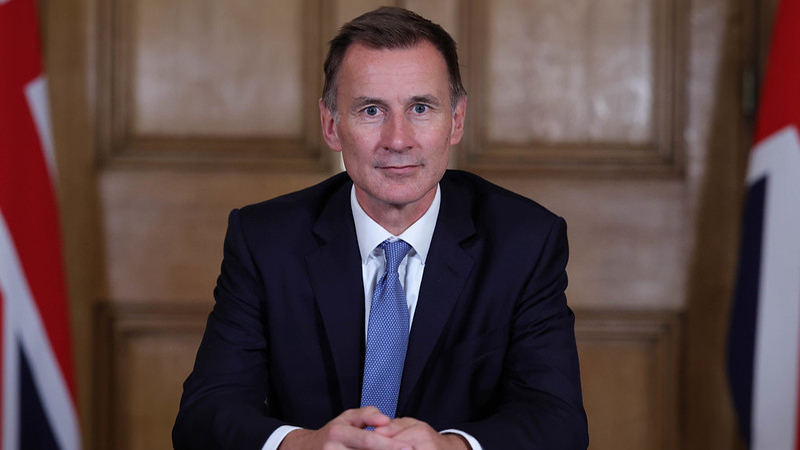Chancellor Jeremy Hunt has scrapped “almost all” of the proposals set out in the mini budget by his short-lived predecessor, Kwasi Kwarteng.
Hunt (pictured), who was appointed on Friday following Kwarteng’s sacking, announced in an emergency statement the reversal of the 1p cut to the basic rate of income tax, which will now stay at 20p indefinitely, while the planned cut to corporation tax was also frozen.
The only tax-related measures kept from the 23 September mini budget are the cuts to stamp duty and national insurance contributions.
Market Reaction
The emergency statement was made to reassure markets following weeks of turmoil in the wake of the so-called ‘fiscal event’. According to Victoria Scholar, head of investment at Interactive Investor, markets have reacted positively so far.
She said: “Jeremy Hunt’s focus on reassuring the markets and reinstating confidence appears to have worked so far, with gilt yields trading lower and sterling pushing higher. The FTSE 100 is staging gains with utilities and housebuilders, the most budget-sensitive sectors outperforming as ‘Trussonomics’ is unwound with the reversal of the biggest tax cuts in 50 years.”
Chris Beauchamp, chief market analyst at IG Group, said: “The message is very much one of calm and getting a steady hand back on the tiller. The focus on market turmoil was interesting, being an acknowledgement that the UK and its fiscal policies do not exist in a vacuum, isolated from financial markets.
“This greater degree of self-awareness, as well as Hunt’s reputation as being more of a ‘safe pair of hands’ certainly seems to have reassured everyone. For now, the market seems happy to give the new chancellor time and space to put the government’s house back in order.”
Who is in charge?
The chancellor’s emergency statement also saw the watering down of the energy price guarantee, which formed the bulk of spending in the mini budget. Universal energy bill support was initially guaranteed for two years, before Hunt announced it would now last until April 2023, while a Treasury-led review assesses what will happen after.
While the reversal of much of the mini budget may calm market anxiety in the short term, the political consequences are yet to be seen. Industry commentators have warned that the prime minister’s uncertain future may cause further concern for investors.
Matteo Cominetta, director economist at the Barings Investment Institute, said: “Markets see when there is inconsistency between government policies and their stated goal. There was a major inconsistency between the huge fiscal push announced by the UK government and the goal of bringing inflation under control while maintaining financial stability.
“Announcing you will borrow almost £300bn pounds—13% of GDP—more and will use that wall of money to prop up demand in a context of out-of-control inflation, surging cost of debt globally and a very uncertain outlook for your domestic economy, is a very high-stake bet. It will likely stoke inflation and increase enormously bond issuance, at a time when the Bank of England is trying to contain inflation and sell the vast amount of UK bonds it owns.
“Markets made clear they were in no mood to take such bets. Prime minister Truss moved rapidly to try and save her own premiership, dropping half of the fiscal package and substituting finance minister Kwasi Kwarteng with Jeremy Hunt. These U-turns are making markets sigh in relief, UK assets and the pounds are recovering.
“The relief may be short lived though. The problem for Truss is that the policies included in the package were not Kwarteng’s policies, they were very much her own. She campaigned on a ticket of tax cuts, deregulation and fiscal profligacy to convince Conservative party members to elect her prime minister. Now that Jeremy Hunt is the new finance minister and announced policies pretty much opposite to those Truss based her premiership on, who is in charge? And what does she or he intend to do to weather the storm? And are conservatives MPs agreeing?
“The message one gets from observing the convolution of UK policies in the last months is that there is no group in control of the government, and no vision for the economic policies the country needs. In this void, there is no guarantee Jeremy Hunt’s policies will remain, PM Truss will stay in power and future policies will be consistent with price and financial stability. Buying the UK relief rally is betting everything will be fine.”
Laura Suter, head of personal finance at AJ Bell, said that today’s U-turn “sounded the death knell for Trussonomics”.
Of the political consequences of the U-turn, she added: “Many Tory party members who voted for her will wonder what the point of Truss is without Trussonomics, particularly as she now has the unwelcome moniker of the most unpopular prime minister in recent history. There will now be big questions around the stability of Liz Truss’ position.”











